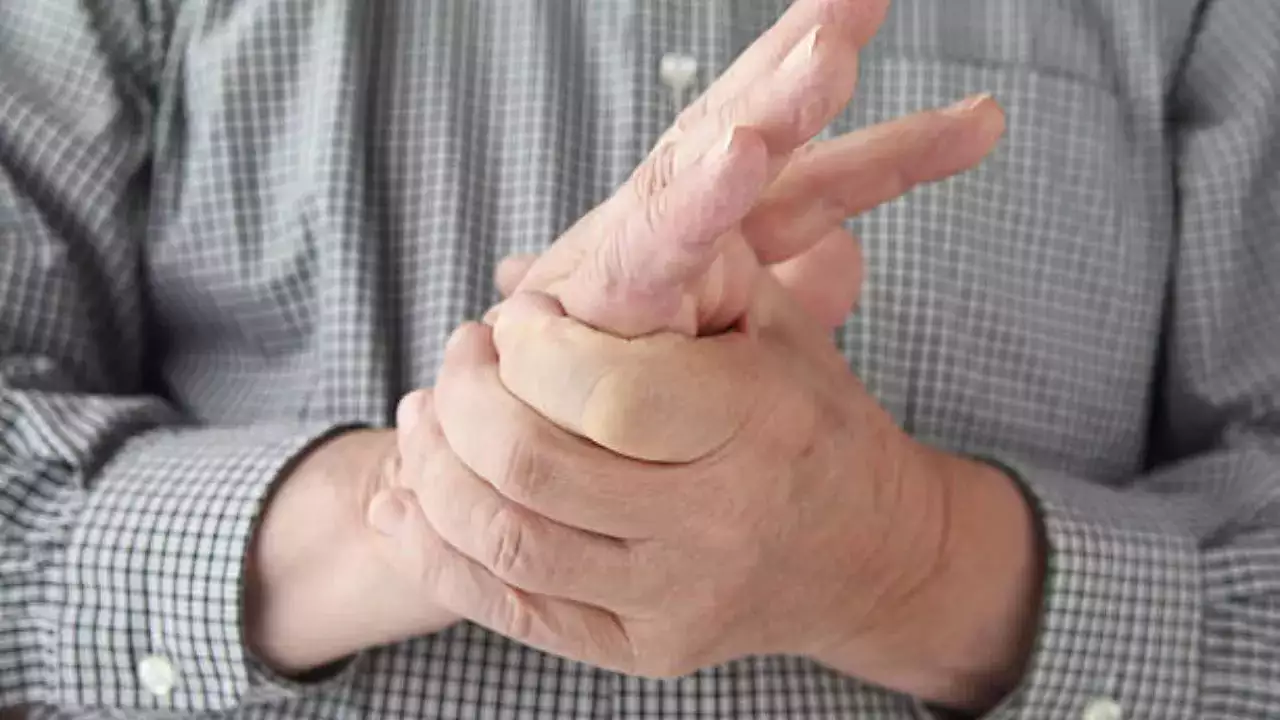
Is Your Knuckle-Cracking Habit Putting You At Risk For Arthritis? Expert Says THIS (Image Credits: iStock)
Knuckle cracking is a common habit that many people indulge in, often unconsciously. Whether it's the satisfying popping sound or a sense of relief, this habitual action has long been surrounded by myths, the most prevalent being that it causes arthritis. But is there any truth to this claim? We got in touch with two leading orthopaedics, Dr Ashish Phadnis, Director of Orthopedics and Joint Replacement at Jupiter Hospital, Thane, and Dr Akhilesh Yadav, Associate Director of Orthopedics and Joint Replacement at Max Hospital, who debunked this belief. So what exactly happens when you crack your knuckles? Let’s check!
Cracking knuckles involves changes in pressure within the joints. According to Dr Phadnis, joints are surrounded by a fluid known as synovial fluid, which acts as a lubricant and facilitates smooth movement. When you bend or stretch your fingers, the pressure within the joint changes, causing gas bubbles, primarily nitrogen, in the synovial fluid to collapse. This release of gas produces the familiar popping sound.
“It’s a harmless physiological process,” explains Dr Yadav. The popping sound is not caused by bones or cartilage grinding, but rather by the gas bubbles bursting. This means the act itself does not harm the joint.
Knuckle Cracking and Arthritis: Is There a Connection?Despite its reputation, knuckle cracking does not cause arthritis. Dr Phadnis states that extensive research, including long-term studies, has shown no link between knuckle cracking and the development of arthritis.
Dr Yadav further explains that arthritis is primarily caused by factors such as:
- Age: Wear and tear on joints over time.
- Genetic predisposition: A family history of arthritis.
- Joint injuries: Trauma to joints can increase the risk of osteoarthritis.
- Obesity: Excess weight places additional strain on weight-bearing joints like the knees and hips.
“Knuckle cracking does not cause the kind of joint damage or wear and tear associated with arthritis,” adds Dr Yadav.
Possible Side Effects of Knuckle Cracking
While knuckle cracking is not harmful in terms of arthritis, frequent or aggressive cracking may have minor effects:
- Joint Instability: Habitual cracking could stretch the ligaments around the joints, potentially leading to a slight decrease in joint stability.
- Soft Tissue Irritation: Sudden or forceful cracking might irritate soft tissues, causing short-term swelling or discomfort.
These effects are usually temporary and do not lead to long-term joint damage.
How to Maintain Healthy Joints?
Even though knuckle cracking is harmless, overall joint health is crucial to prevent issues like arthritis. Experts recommend the following tips:
Stay Active
Regular physical activity keeps joints flexible and strengthens muscles. Low-impact exercises such as swimming, yoga, and walking are particularly beneficial for joint health.
Maintain a Healthy Weight
Excess weight puts unnecessary pressure on joints, particularly in the knees and hips. Maintaining a healthy weight reduces the risk of developing joint problems.
Adopt a Nutritious Diet
A diet rich in nutrients such as omega-3 fatty acids, antioxidants, and vitamins supports joint health. Incorporate foods like fish, nuts, leafy greens, and fruits into your meals.
Managing Stress on Joints
Dr Yadav shares that prolonged sitting or repetitive strain from office jobs can negatively impact joint health. It’s important to take breaks, stretch regularly, and maintain good posture to prevent joint stiffness and discomfort.
Get Latest News Live on Times Now along with Breaking News and Top Headlines from Health and around the world.
